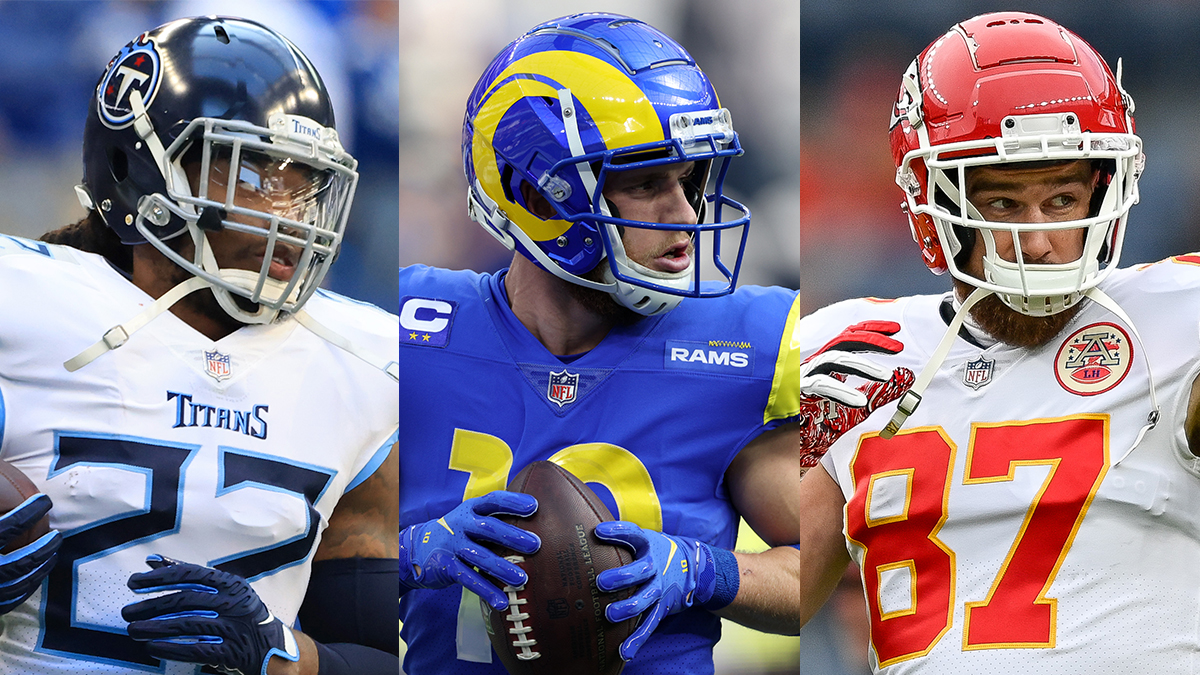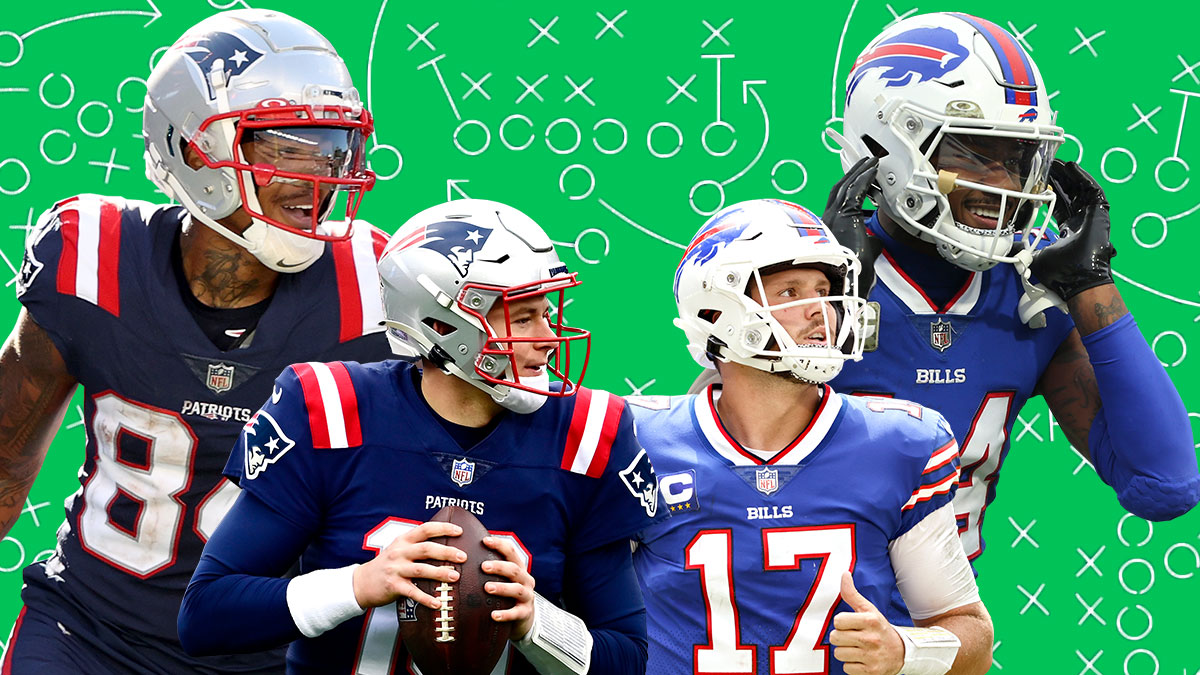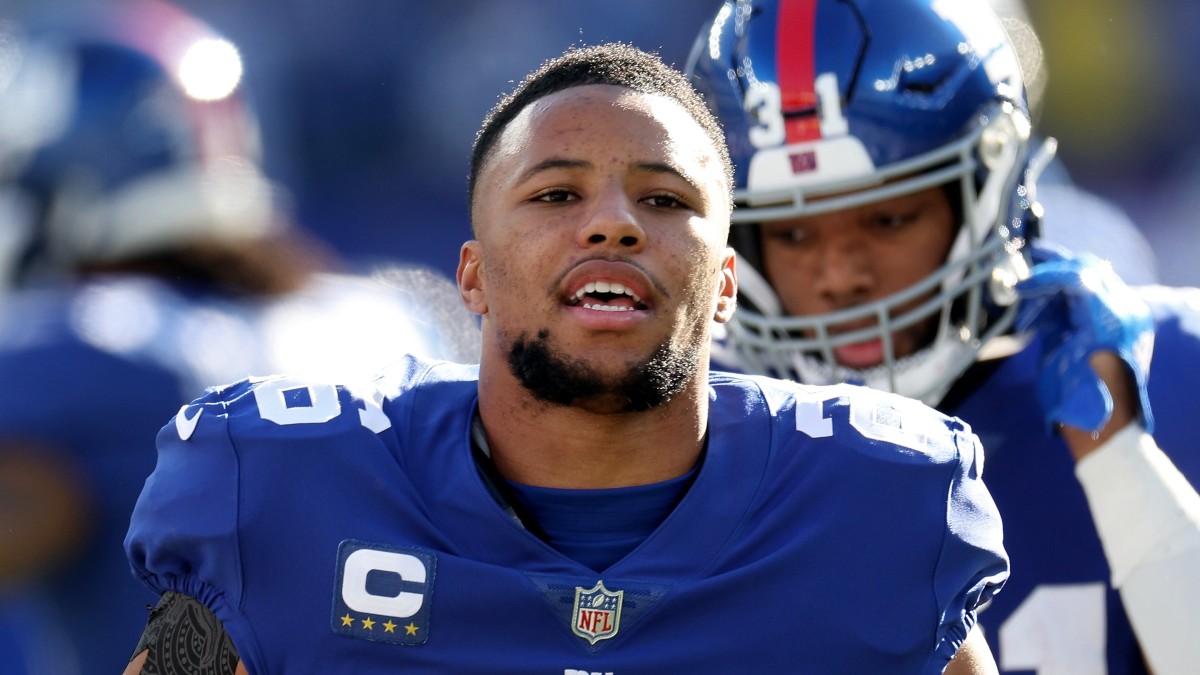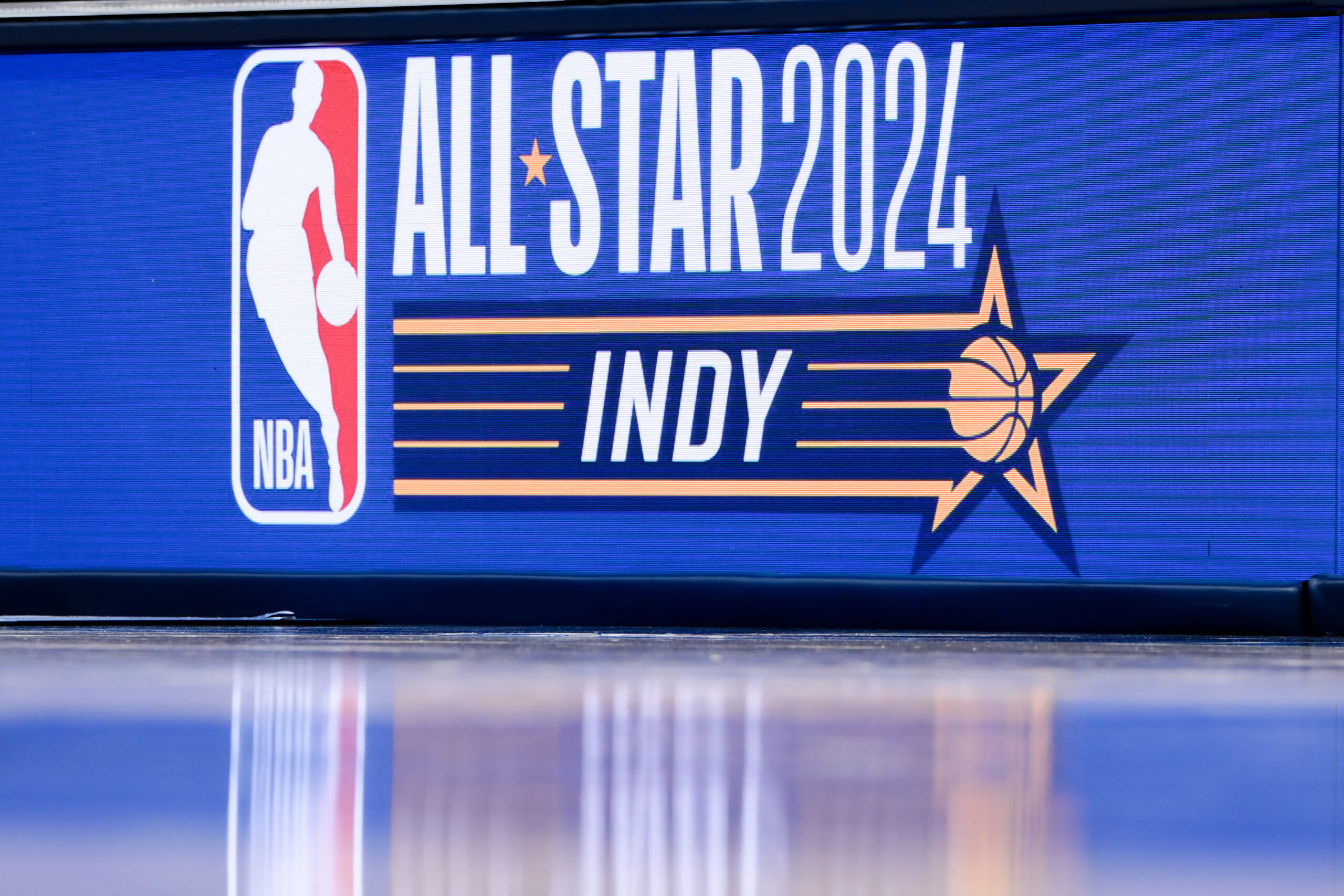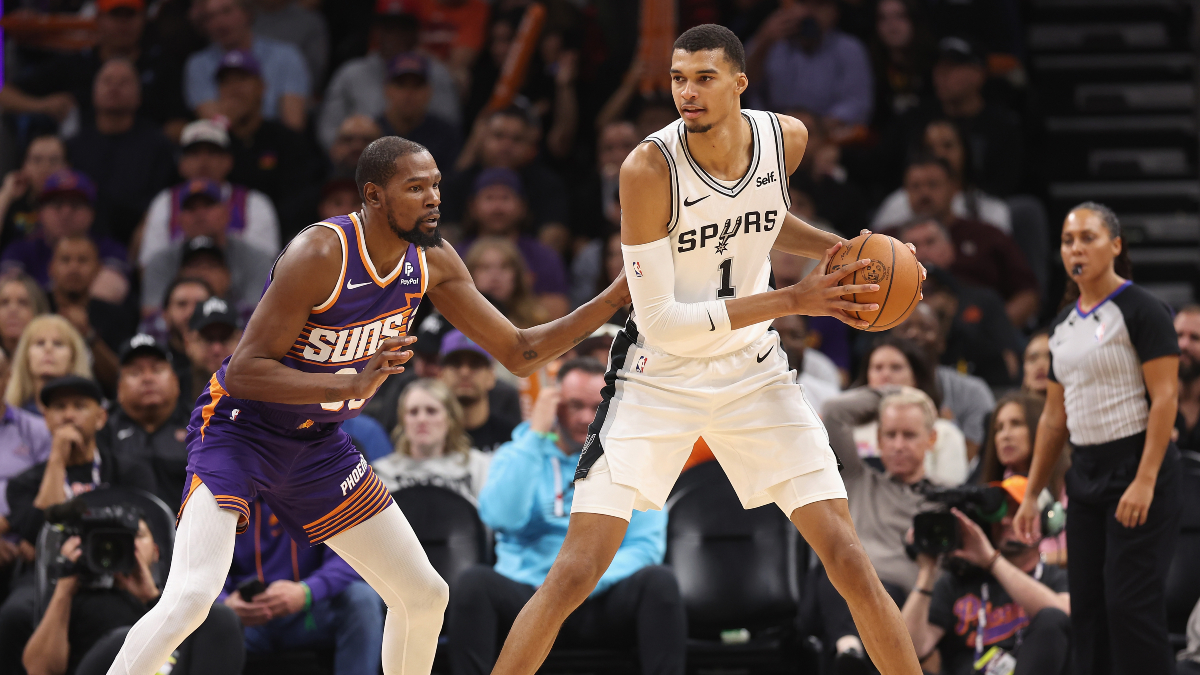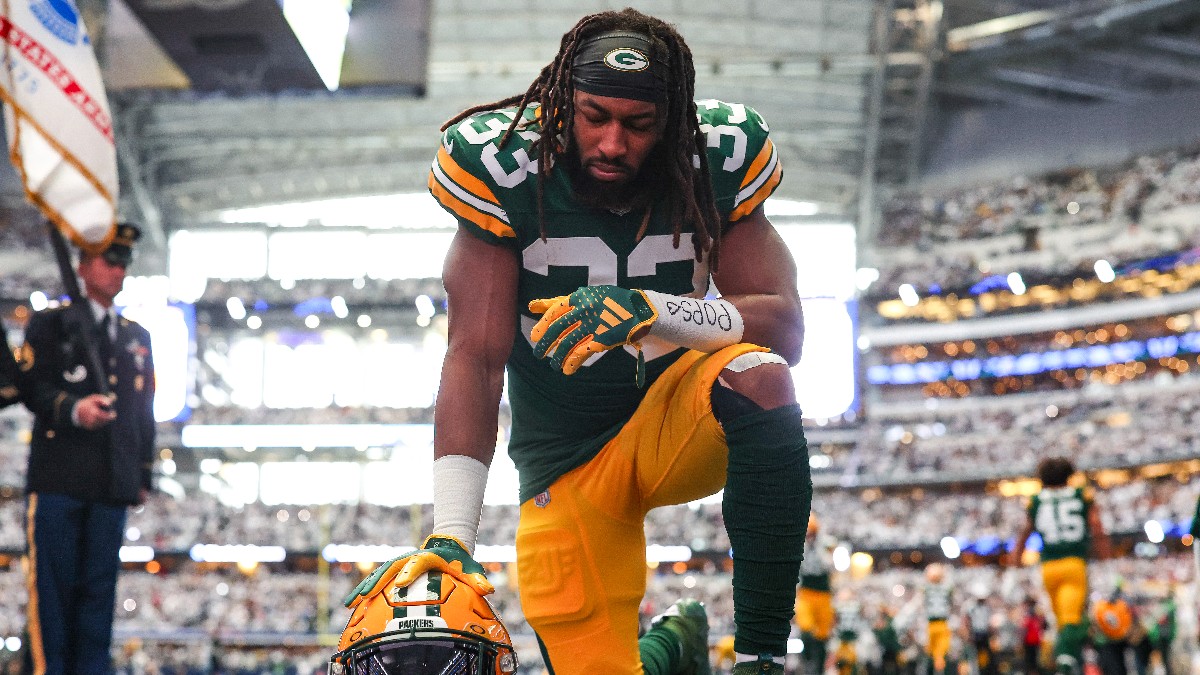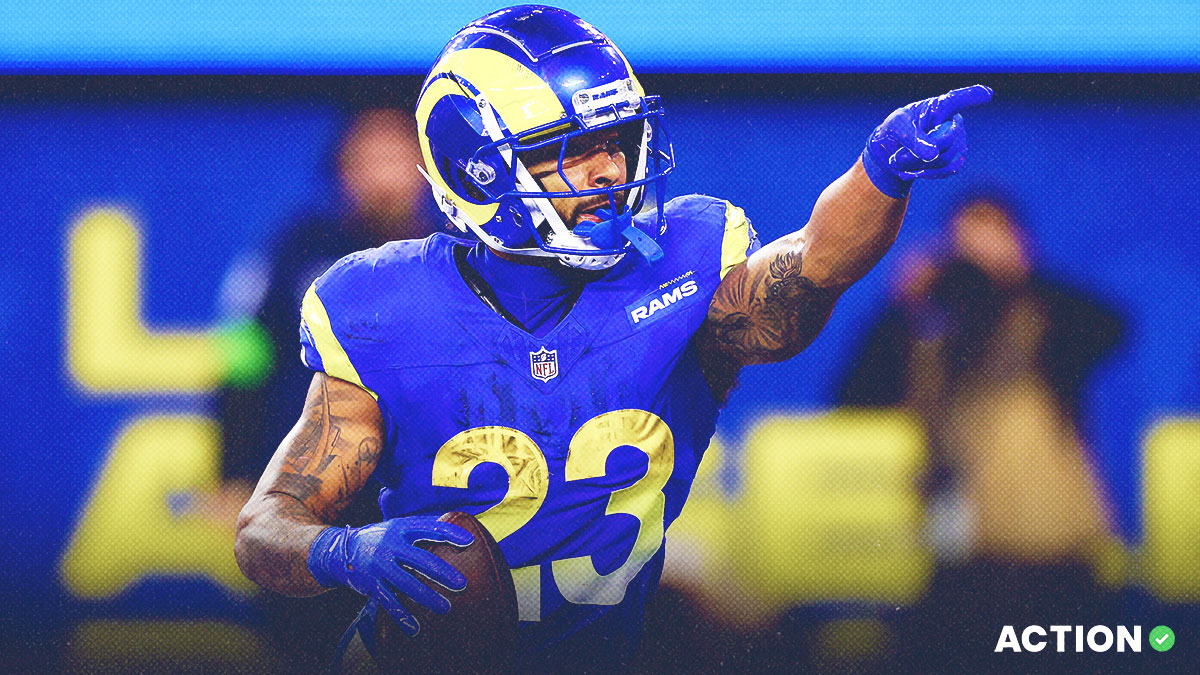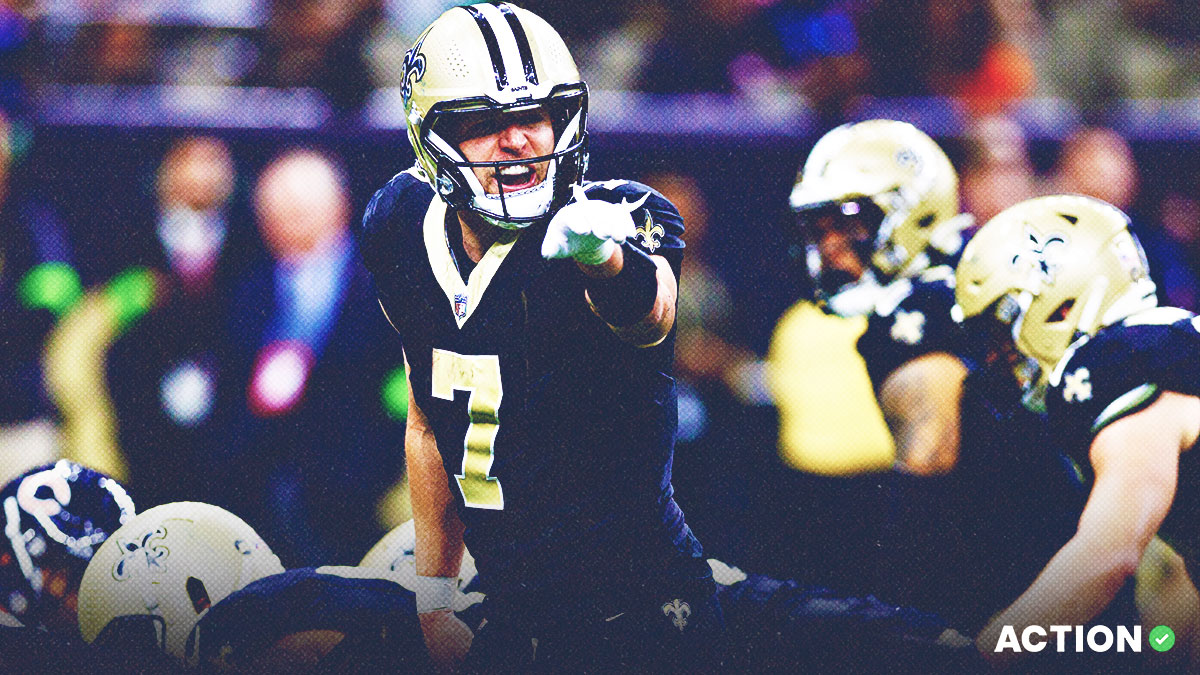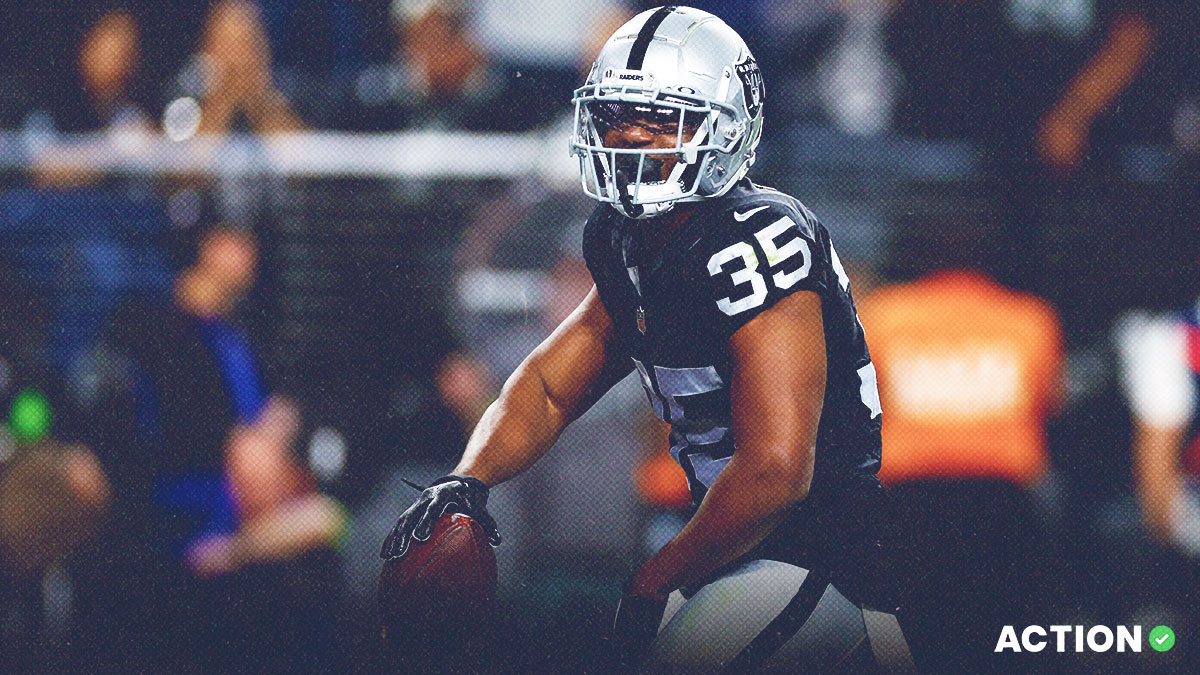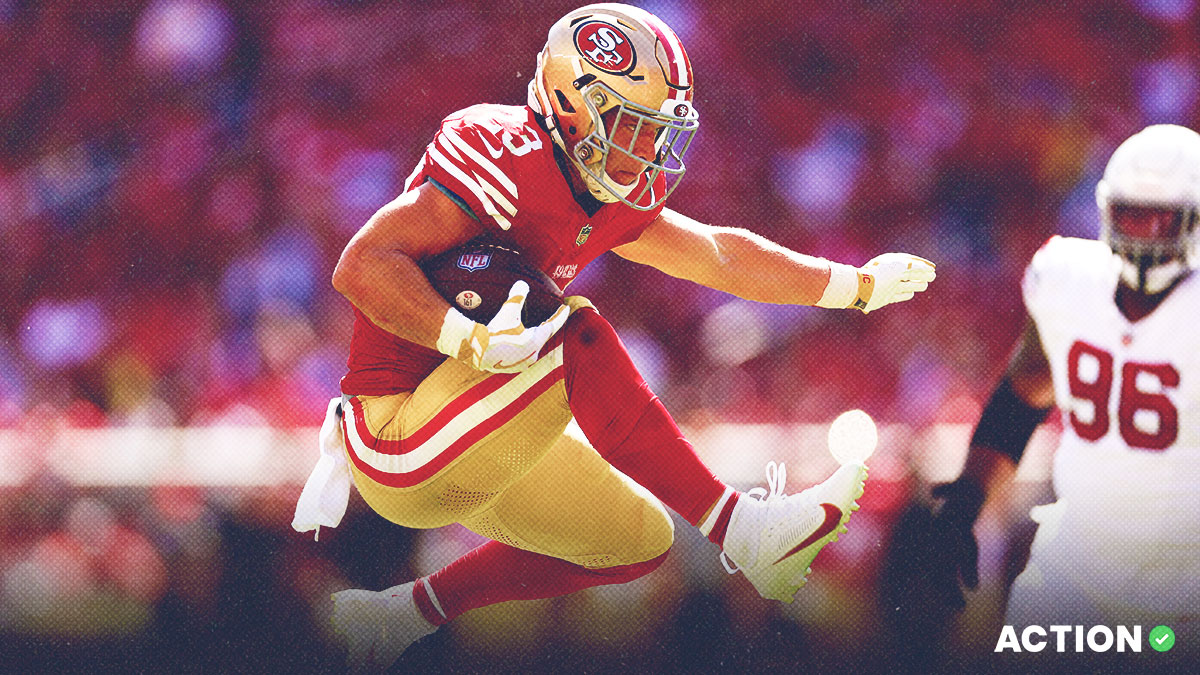With season-long fantasy football leagues wrapped up, many die-hard players will turn their attention to daily fantasy, player props and playoff contests such as the FFPC Playoff Challenge.
Unlike other formats, the rules of the FFPC Playoff Challenge are fairly straightforward. The contest has no draft or salary cap and requires entrants to pick any 12 players from the 14 playoff teams for a chance to win $500,000 (with a $200 entry fee).
With rosters set to lock shortly after the first wild-card game kicks off at 4:35 ET on Saturday, I've built a sample lineup for this contest so you can get an idea of which factors you should consider when building yours.
Here are a few notes on the contest rules and my strategy before we dive into the sample lineup I built.
Fantasy Playoff Roster Strategy
1) Rosters will be constructed as follows: 1 quarterback, 2 running backs, 2 wide receivers, 1 tight end, 4 flex (RB/WR/TE), 1 kicker, 1 team defense.
2) A maximum of one player per team may be selected. This means you cannot pick Aaron Rodgers and Aaron Jones.
3) Six of the 14 teams will only play in one game. This means entrants can fade two teams and will have at least four players on their rosters with only one cumulative game. I chose to reserve those roster spots for the lower-scoring positions: Kicker, defense and my final two flex spots.
4) Predicting the outcome of the matchups, or how many games each player will play, is the crux of this puzzle. For the sake of simplicity, I predicted the higher seed to win each matchup to end up with a Titans-Packers Super Bowl. Both are the 1-seeds in their respective conferences, however, and will have a maximum of three games to play with a first-round bye (as opposed to the other 12 teams that have a maximum of four possible matchups).
5) The scoring is fairly standard, with exception to the following nuances: One point for every 20 yards passing (as opposed to 25 yards), full PPR for RB/WR, 1.5-point per reception for TE (TE-premium).
6) Points in the Super Bowl count doubly.
7) The contest's payout structure is top-heavy. It has a grand prize of $500,000 with a total guaranteed prize pool of $1,289,250, paying down to 850th place. Second place is awarded $100,000, third place is awarded $50,000, and so on. This lends itself to some contrarian plays, similar to GPP tournament-style contests in daily fantasy. See full payout structure here.
Sample FFPC Playoff Challenge Lineup
* Projected number of effective games played in parentheses.
- QB: Josh Allen, Bills (3)
- RB1: Derrick Henry, Titans (4)
- RB2: Joe Mixon, Bengals (2)
- WR1: Davante Adams, Packers (4)
- WR2: Cooper Kupp, Rams (3)
- TE: Travis Kelce, Chiefs (2)
- FLEX1: Leonard Fournette, Buccaneers (2)
- FLEX2: Ezekiel Elliott, Cowboys (2)
- FLEX3: Deebo Samuel, 49ers (1)
- FLEX4: Hunter Renfrow, Raiders (1)
- K: Matt Prater, Cardinals (1)
- D: New England Patriots (1)
QB: Josh Allen, Bills
Allen was the fantasy QB1 this season, on a per-game and total points basis. He averaged 24.6 fantasy points per game — two full points more than Tom Brady and Kyler Murray.
Although I am projecting Aaron Rodgers to score the most quarterback points based on when I think the Bills might be eliminated (I am projecting that the Bills will play three games in the playoffs), the difference between Rodgers and the next-best quarterback is less than the difference between Davante Adams and the next-best wide receiver.
Selecting Allen rules out Stefon Diggs, Dawson Knox and Devin Singletary — all of whom are solid plays, but it's hard to compete with the QB1.
RB1: Derrick Henry, Titans
This one feels like a no-brainer given that I am projecting the Titans to make it all the way to the Super Bowl. That means even with the first-round bye, the Titans will effectively play four games in this format.
Henry carries risk coming off a major injury that knocked him out of the entire second half of the regular season. In spite of playing just eight games this year, he still finished as the RB17 in full PPR, sandwiched between D'Andre Swift and Damien Harris. Henry averaged 24.2 fantasy points per game — two points more than Jonathan Taylor.
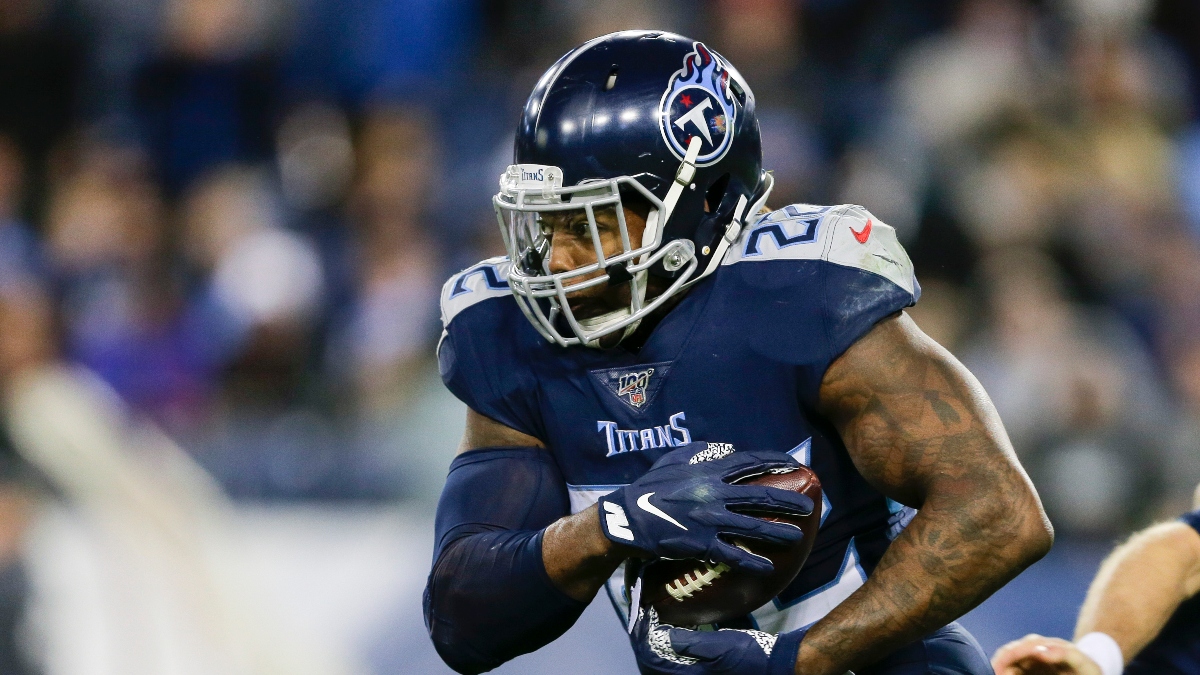
Henry has no first-round matchup, but will instead play the winner of Chiefs-Steelers — neither of which have particularly fearsome run defenses.
Selecting Henry rules out both A.J. Brown and Ryan Tannehill. I considered Brown for a moment, but Henry is the obvious play here.
RB2: Joe Mixon, Bengals
Aaron Jones ranks No. 2 behind Henry in my expected points model given that I am projecting the Packers to make it all the way to the Super Bowl. However, picking Jones would have ruled out Davante Adams, who is projected for more points and has more relative value.
Mixon had one of the quietest stellar seasons. He averaged 18 points per game in full PPR and finished as the RB4 through 17 weeks. He posted his worst game of the year in Week 15, but bounced back in a huge way in Weeks 16 and 17, combining for 43 touches, 221 scrimmage yards and two touchdowns.
Mixon will be well-rested after missing Week 18 due to COVID-19 to face the Raiders' defense, which allowed the fourth-most fantasy points to running backs this season. He exploded in these two teams' first meeting in Week 11 and tallied 30 attempts for 123 yards and two touchdowns.
Selecting Mixon rules out Ja'Marr Chase, Tee Higgins and Joe Burrow. It was a tough call between Chase and Mixon. Chase might have the higher ceiling — especially in full PPR scoring — but the first-round matchup is worse, as the Raiders rank fifth-best in fantasy points allowed to receivers this year.
WR1: Davante Adams, Packers
Adams is a clear choice based on his performance this season and how far I predict the Packers to make it in the playoffs.
He finished as the WR2 in full PPR and was the paragon of consistency this year. He did not post a single game with fewer than 10 fantasy points. His 11 touchdowns this year were a letdown from a career-high 18 in 2020. He made up for it with 123 catches — the second-most in the NFL — and 1,553 receiving yards — third-most in the league.
Selecting Adams rules out Aaron Rodgers and Jones. Both were very tempting, but Adams feels extremely safe, especially in full PPR.
WR2: Cooper Kupp, Rams
I don't love to toss around the term "league-winner," but if there ever were a case for one, it's Kupp.
Kupp posted an absolutely historic season with league-highs in catches (145), yards (1,947), touchdowns (16) and fantasy points. His consistency was unparalleled: He did not have a single game with fewer than 11 fantasy points in PPR and finished outside the top 12 at the position in two weeks all year.
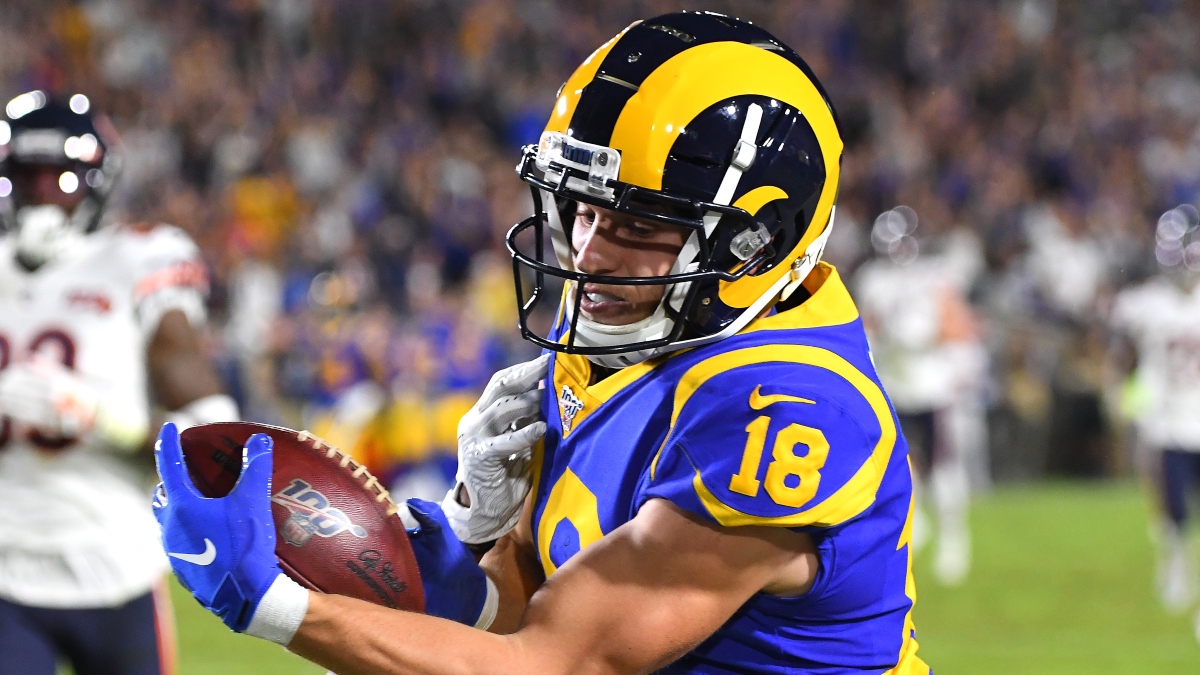
His 412.9 fantasy points through 17 weeks dwarfed the competition and topped every other player — including quarterbacks. The next-closest player was Josh Allen, who had 19.1 fewer points over the course of the year. And the next-closest receiver, Davante Adams, had 80 fewer fantasy points.
Selecting Kupp rules out Matthew Stafford, Sony Michel and Tyler Higbee — none of whom hold a candle to Kupp's value.
TE: Travis Kelce, Chiefs
I am projecting Dawson Knox to be the highest tight end scorer (by a hair) based on projected games played, but we have already used Allen in the quarterback slot.
Selecting Kelce rules out Tyreek Hill, Patrick Mahomes and Clyde Edwards-Helaire. Choosing between playing Kelce and Hill is a tough call, and I did toy with the idea of a George Kittle-Tyreek Hill or Rob Gronkowski-Tyreek Hill combo over Kelce-Samuel or Kelce-Fournette. I gave the edge to Kelce due to the tight-end premium scoring (1.5 points per reception) and his high target volume.
This season actually broke Kelce's five-year streak of finishing as the top tight end for fantasy. He finished a disappointing second (sarcasm) behind Mark Andrews and tallied 88 catches for 1,091 yards and nine touchdowns — his sixth consecutive 1,000-receiving yard season.
Although I don't have the Chiefs in my Super Bowl matchup, they have a really solid chance of making it all the way, which makes Kelce an even more attractive play.
Flex: Leonard Fournette, Buccaneers
There was simply no universe in which "Playoff Lenny" did not make it into this lineup.
Fournette is expected to return just in time for the Buccaneers' first playoff game against the Eagles, who allowed the 10th-most fantasy points to running backs in the regular season. Their wild-card matchup makes it highly likely that the Buccaneers advance at least to the Divisional Round, as the line is currently at -8.5 in their favor (check real-time NFL odds here).
Fournette averaged 18.3 fantasy points per game in full PPR this season — the second-highest average among running backs on playoff teams.
Like Henry, Fournette carries some risk coming back from injured reserve. He missed the final three games after suffering a hamstring injury against the Saints in Week 15. He could see slightly decreased snaps, but it's less of a concern with Ronald Jones unlikely to play.
Selecting Fournette rules out Rob Gronkowski, Mike Evans and Tom Brady. All three were attractive plays, especially Gronk in light of the extra half-point for tight end receptions, but Fournette offers the highest floor of the group in my opinion.
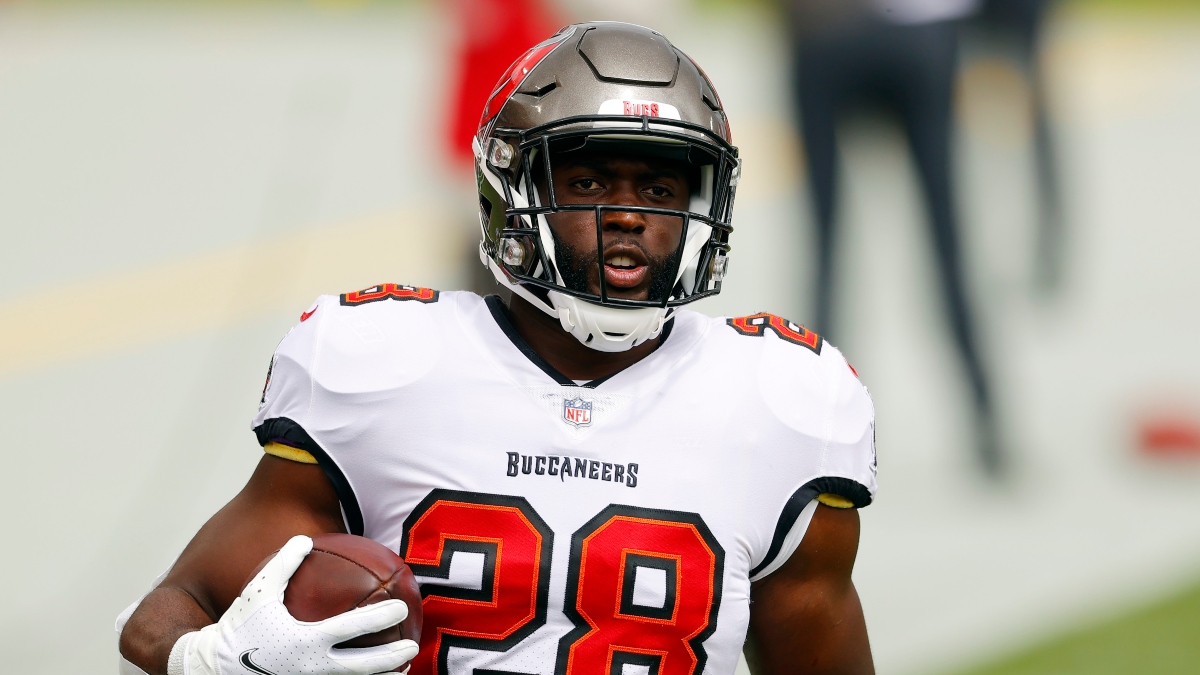
Flex: Ezekiel Elliott, Cowboys
It's odd to say this, but finding a slam-dunk player from this high-octane Cowboys offense was rather difficult. I settled on Elliott, who will assuredly be a popular play, even against a 49ers defense that ranks 10th-toughest against fantasy running backs.
In spite of injuries and competition for carries from Tony Pollard, Elliott finished as the RB6 in full PPR. He posted his sixth-consecutive 1,000-scrimmage yard season and sixth-straight top 12 finish. He would have been a stronger play if Pollard were to sit out another game. Pollard is trending toward returning for this game, however, which could cannibalize some of Elliott's workload.
Selecting Elliott rules out CeeDee Lamb, Dak Prescott and Dalton Schultz. Lamb and Elliott are very close in projected points, and ordinarily I would give the edge to a receiver based on the full PPR scoring. However, Lamb's recent performances do not inspire a ton of confidence, as the Year 2 wideout has not found the end zone since Week 10 against Atlanta.
Flex: Hunter Renfrow, Raiders
With four spots on this roster left to fill, we are now scraping the bottom of the barrel as all four of my final selections will only play in one game.
The team options are the Raiders (vs. Bengals), Patriots (vs. Bills), Steelers (vs. Chiefs), Cardinals (vs. Rams), 49ers (vs. Cowboys) and Eagles (vs. Buccaneers). We get to fade two teams entirely, so I am going with the Steelers and Eagles — both the 7-seeds in their respective conferences. And both have the worst odds of advancing to the next round.
The Raiders, who are the AFC's No. 5 seed, have a fairly decent chance of advancing out of the Wild Card Round against the 4-seed Bengals (currently 5-point favorites).
Renfrow truly stepped up with Henry Ruggs out of the picture and has been extremely solid this season. He reeled in 103-of-128 targets for 1,038 yards and nine touchdowns, finishing as the WR11 in full PPR. His 80.5% catch rate was the second-highest in the NFL among receivers and he posted just three games all season with single-digit fantasy points.
Selecting Renfrow eliminates using Derek Carr, Josh Jacobs and Darren Waller. Waller and Jacobs have been banged up and there are far superior options at quarterback than Carr.
Flex: Deebo Samuel, 49ers
The 49ers aren't projected to advance out of the first round, according to Vegas, which currently has them as field-goal underdogs to the Cowboys. That said, I think the 49ers have the best chance of the six underdogs, and Samuel's upside is undeniable.
He was essentially written off heading into 2021 after a disappointing and injury-riddled 2020 in which he appeared in just seven games and caught 33 passes for 391 yards and a touchdown. He bounced back in a huge way, completely usurping Brandon Aiyuk — who was drafted 12 spots higher — and posted his first 1,000-yard season. He finished the fantasy season with 73 catches on 115 targets for 1,310 yards and six touchdowns. The versatile player was also deployed as a rusher amid the 49ers’ running back woes and saw 51 rushes for 320 yards and seven touchdowns. His combined 15 touchdowns tied Najee Harris for sixth-most in the NFL.
Samuel was consistency defined for fantasy purposes and did not post a single game with fewer than eight fantasy points all year. He finished with three times as many games with 20 or more fantasy points than he did with single digits, making him one of the best steals of the draft.
Selecting Samuel rules out Jimmy Garoppolo, Elijah Mitchell and George Kittle. Kittle certainly has appeal, especially with the tight-end premium scoring, but Samuel offers the highest floor and ceiling.
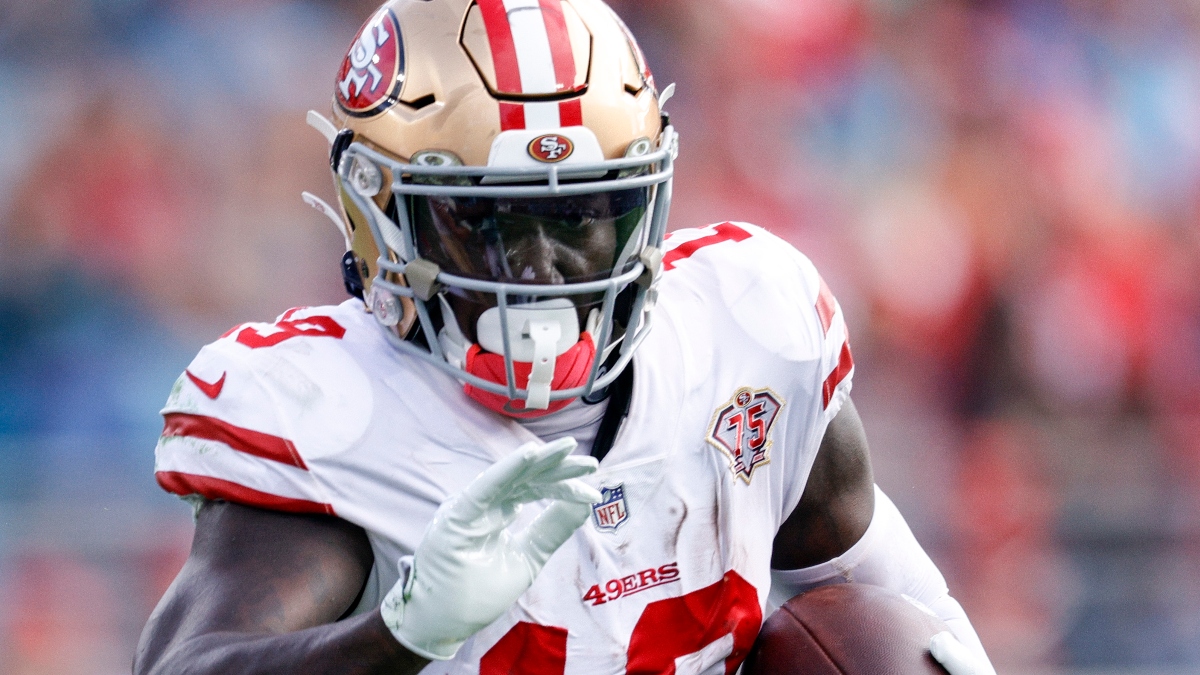
K: Matt Prater, Cardinals
Of the final four teams — Steelers, Patriots, Cardinals, Eagles — Prater seems like a safe choice.
The Cardinals often tack on a lot of points and Prater was the eighth-highest scoring kicker in fantasy this season. Nick Folk and Chris Boswell scored more points this season, but I want to use the Patriots' defense and the Steelers have a significantly worse chance of advancing out of the first round.
Selecting Prater rules out Kyler Murray, Christian Kirk, Zach Ertz and James Conner. Murray is certainly tempting, but there are better quarterback options based on probability of advancing. Conner is an attractive option, too, but he's been banged up and could share work with Chase Edmonds, making this a backfield worth avoiding.
D: New England Patriots
The Patriots' D/ST finished as the second-highest scoring team defense for fantasy. The unit averaged 10 points per game behind only the Cowboys, who are unavailable after using Elliott. None of the remaining teams have spectacular matchups in the Wild Card Round, but I believe this New England unit is the most talented.
Selecting the Patriots' D/ST rules out Mac Jones, Damien Harris, Kendrick Bourne and Nick Folk — none of which are sexy options.


